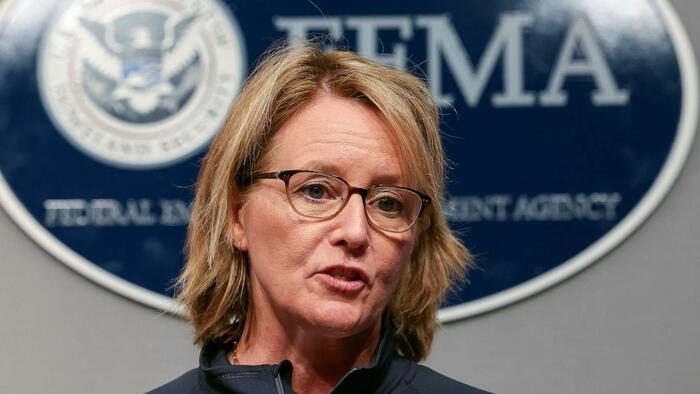Brian McGlinchey’s analysis highlights the ongoing financial strain on the Federal Emergency Management Agency (FEMA) as it deals with the multifaceted aftermath of the Covid-19 pandemic while simultaneously responding to recent hurricanes. The agency’s Disaster Recovery Fund is reportedly under pressure, unable to comfortably manage the demands of another major storm. Accusations suggesting that disaster funds are misallocated to immigrant aid or foreign conflicts in Ukraine have surfaced. However, the reality is that billions continue to flow from FEMA to cover pandemic-related expenses, including reimbursing families for Covid-19-related funerals—an expenditure that seems to lack rationale now that the pandemic’s official emergency status has ended.
The significance of FEMA’s reimbursement program for funeral expenses resulting from Covid-19 cannot be overstated. Despite the program’s intentions, critics argue that it unfairly prioritizes Covid-19 deaths over other causes, raising ethical concerns about a government deciding the worthiness of various types of death. For instance, it appears perplexing that families of Covid victims receive up to $9,000 for funeral costs while those who lose relatives to cancer or accidents do not qualify for similar support. Moreover, programs do not account for pre-planned funeral arrangements, creating a sense of inequity among families who saved for future expenses only to find themselves disadvantaged.
FEMA’s Covid funeral reimbursement effort is unprecedented in scale compared to its historical operations. In the ten years prior to the pandemic, the agency received around 6,000 applications for funeral assistance, while over 300,000 applications related to Covid-19 were approved, costing approximately $3.15 billion. This substantial increase raises questions about consumer behavior: with $9,000 government assistance available, families may opt for more extravagant funeral services, inadvertently inflating costs across the funeral industry. The National Funeral Directors Association even praised legislation that mandated these reimbursements, indicating a potential conflict of interest and lobbying efforts shaping the program’s provisions.
Compounding the issues with financial mismanagement, FEMA has also been criticized for its operational inefficiencies. The agency’s approach to processing claims did not include an online application system, leading to resource-heavy call centers to manage the influx of applications. As a result, significant taxpayer money has been allocated to administrative burdens, outreach efforts, and addressing improper payments that stem from both genuine errors and potential fraud within the reimbursement system. Reports from the General Accountability Office (GAO) indicate that a significant number of approved claims did not adhere to the program’s eligibility criteria, leading to potentially rampant misuse of funds.
FEMA’s ongoing Covid-19 outlays are striking, constituting nearly 39% of all disaster relief obligations in fiscal year 2023, which should be a focal point for scrutiny among lawmakers. Meanwhile, Secretary of Homeland Security Alejandro Mayorkas has indicated that the agency is at risk of being unable to fund necessary responses to upcoming disasters due to dwindling resources. This has sparked misguided narratives about migrants draining the disaster fund, whereas the true challenge lies in FEMA’s financial commitment to pandemic-related expenses, which should no longer be deemed a pressing priority in light of the pandemic’s status.
As the agency continues to project future spending on Covid-19 initiatives, concerns regarding the depletion of its Disaster Relief Fund are paramount. Legislators like Texas Rep. Chip Roy are calling for better transparency and a reconsideration of how Covid-19 financial obligations are impacting FEMA’s capacity to respond to genuine disasters. Current projections indicate that FEMA may continue to utilize substantial funds for pandemic-related expenses for years to come, reflecting both poor planning and inadequate oversight. The overall situation serves as an essential case study about government spending, highlighting the necessity for accountability and reform as the nation grapples with the fiscal ramifications of the pandemic.

